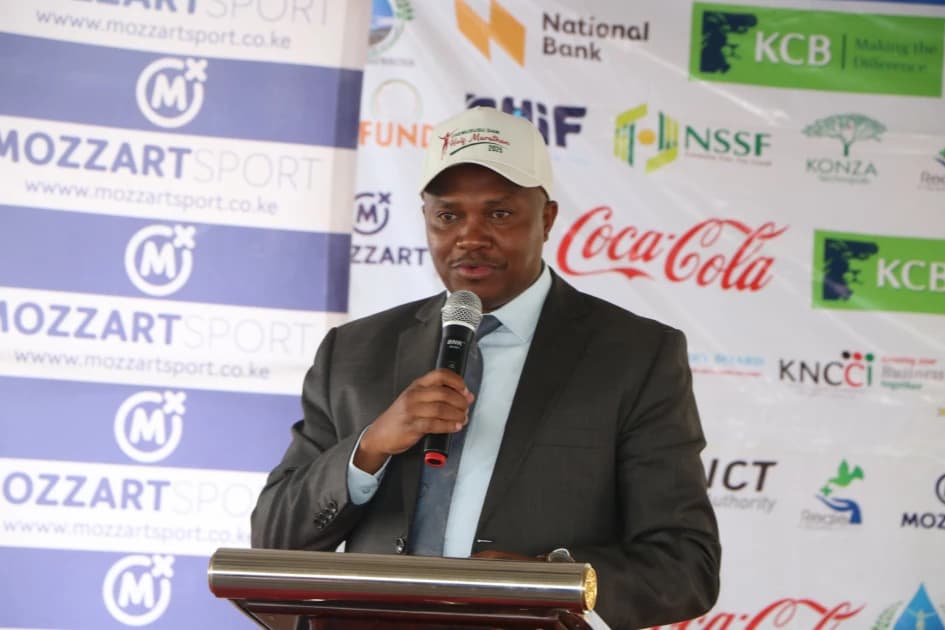We're loading the full news article for you. This includes the article content, images, author information, and related articles.
With the 2027 Africa Cup of Nations on the horizon, Kenya is in a high-stakes race against time to upgrade its sporting infrastructure amid budget uncertainties, a challenge that will define its capacity to host major international events.

Kenya stands at a critical juncture in its sporting history, balancing the prestige of co-hosting the 2027 Africa Cup of Nations (AFCON) with the monumental task of preparing its facilities and finances. The nation's ability to deliver on its promises is under intense scrutiny, with massive construction projects underway even as questions linger about budgetary commitments and timelines.
The centerpiece of Kenya's preparation is the ambitious 'Pamoja' bid, a joint effort with neighbours Uganda and Tanzania to host Africa's premier football tournament. This initiative is seen as a significant boost for East African integration and economic development. However, the success of the tournament hinges on Kenya's ability to provide world-class infrastructure, a challenge that has proven difficult in the past when the country lost the rights to host the 1996 AFCON and the 2018 African Nations Championship (CHAN) due to unpreparedness.
To meet the standards set by the Confederation of African Football (CAF), Kenya has embarked on a multi-billion shilling construction and renovation blitz. The government has earmarked three primary venues in Nairobi: the new Talanta Sports City, Moi International Sports Centre (Kasarani), and Nyayo National Stadium.
The 60,000-seater Talanta Sports City, currently under construction and expected to be completed by December 2025, is the flagship project. Designed exclusively for football and rugby, it promises a modern spectator experience. Meanwhile, both Kasarani and Nyayo stadiums are undergoing extensive renovations to upgrade everything from playing surfaces and seating to media and medical facilities to meet CAF's stringent Category Four requirements. According to government officials, these renovations are progressing, with President William Ruto stating in September 2024 that Kasarani and Nyayo would be ready by the end of that year. However, reports from early and mid-2025 suggest significant delays, with CAF inspection teams expressing concerns over the pace of work, particularly regarding floodlights and playing surfaces.
The ambitious infrastructure projects carry a hefty price tag, with estimates for construction and renovation soaring to over KSh 57 billion. The new Talanta stadium alone is projected to cost around KSh 40 billion. While the government has expressed its commitment, recent budget allocations have raised concerns. For the 2025/26 financial year, the State Department for Sports saw its development budget reduced, and critically, the KSh 3.9 billion fee for AFCON co-hosting rights, due by April 2026, was not allocated. This omission has created uncertainty about Kenya's ability to meet its financial obligations to CAF.
Despite these challenges, Sports Cabinet Secretary Salim Mvurya has consistently reassured the public and CAF of Kenya's readiness, stating that key facilities would be completed on schedule. Government officials have pointed to the successful hosting of other international events as proof of Kenya's capability.
Kenya's sporting ambitions extend beyond continental football. The nation has officially submitted a compelling bid to host the 2029 or 2031 World Athletics Championships, aiming to be the first African city to stage the global event. This bid, strongly supported by the government, leverages Kenya's status as a global athletics powerhouse and its experience hosting successful World Under-18 and Under-20 championships. The proposed venue is a refurbished Kasarani Stadium, further underscoring the importance of the ongoing upgrades. Securing the hosting rights would be a historic achievement, cementing Nairobi's place on the world sporting map.
Ultimately, the coming months will be a decisive test for Kenya. Successfully delivering the required infrastructure for CHAN and AFCON 2027, while navigating financial constraints, will be paramount. The outcome will not only determine the nation's reputation as a credible host for major sporting events but also shape the legacy of sports infrastructure for a generation to come.
Keep the conversation in one place—threads here stay linked to the story and in the forums.
Sign in to start a discussion
Start a conversation about this story and keep it linked here.
Other hot threads
E-sports and Gaming Community in Kenya
Active 9 months ago
The Role of Technology in Modern Agriculture (AgriTech)
Active 9 months ago
Popular Recreational Activities Across Counties
Active 9 months ago
Investing in Youth Sports Development Programs
Active 9 months ago
Key figures and persons of interest featured in this article